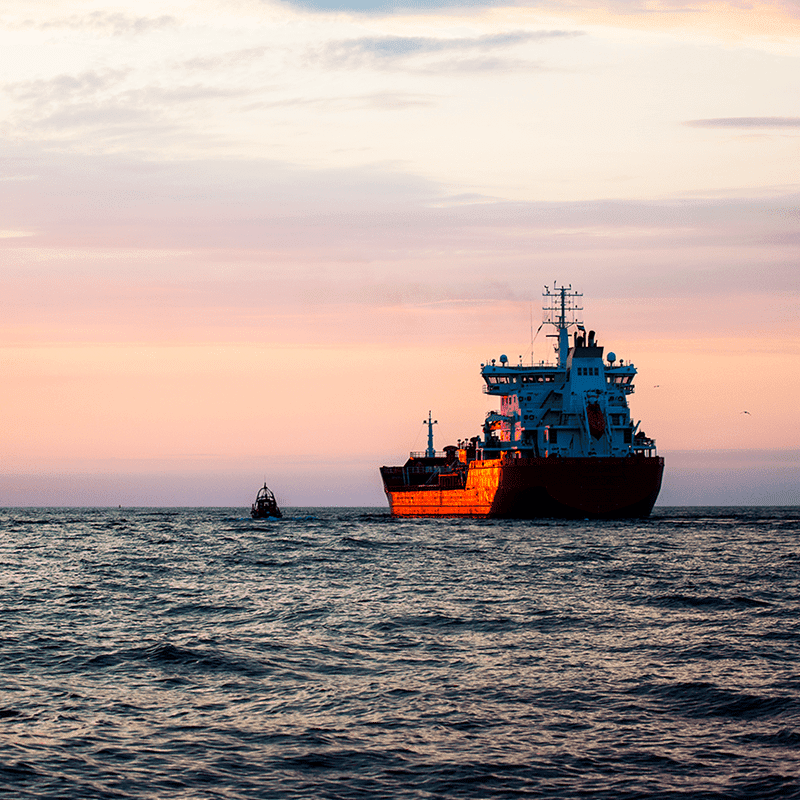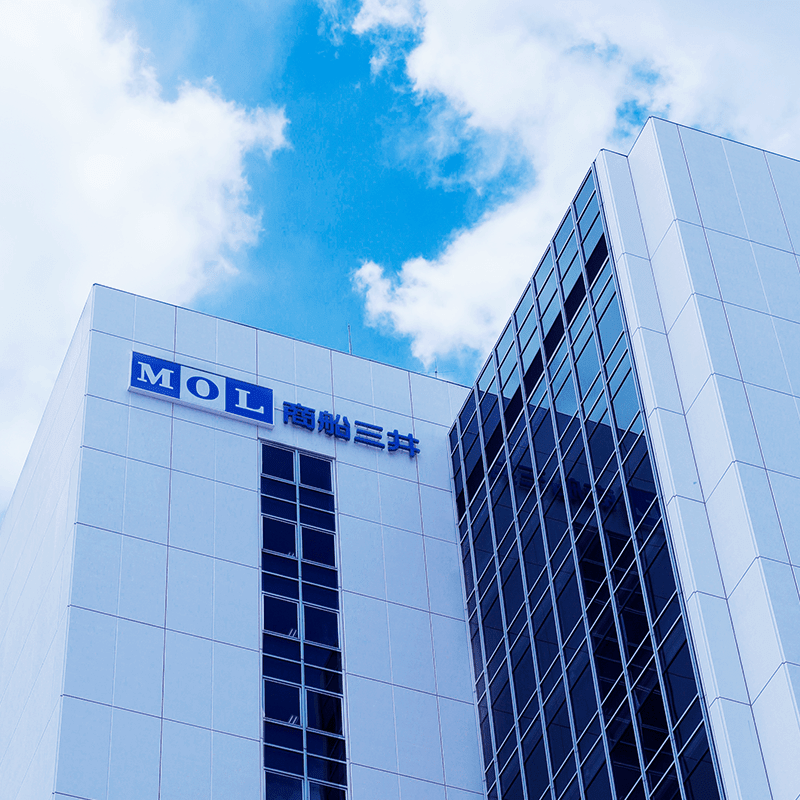BLOG
Now in Chile -where cheerful and earnest ‘honor students live-
- General Shipping
2023.02.28
Chile is a country in the southern hemisphere comprising of a narrow stretch of land running 4,300 km from north to south along the Pacific side of South America. In addition to natural resources such as copper and wood, the economy of the country is driven by exports, mainly fishery and agricultural products such as salmon and wine. The season is exactly the opposite of that in Japan, and the average maximum temperature in Santiago, the capital city, in January when we carried out the interview, was about 30℃. We interviewed Mr. Takuya Fuchikami, the representative of MOL Chile and who is adapting to life halfway around the world, about living and conducting business in Chile.
Taking about 30 hours to reach a fascinating country with a rich culture
- --You've been posted to Chile for about a year, how do you like living there?
I have been involved in the dry bulk business for a long time and was living in India before I was posted to Chile. It seems that I was selected to act as the Chile representative based on my previous experience, which included the transportation of copper concentrate, Chile's main export product. However, in April 2021, when I initially received this appointment, we were in the middle of the COVID-19 pandemic and it coincided with the Chilean government closing its border. Consequently, I was only able to eventually travel to Chile in December of the year.
The official language of Chile is Spanish, which is characterized by a fast form of conversation. In business, I often communicate in English, but in daily life there are many situations where I can only communicate in Spanish, so I had a hard time when I first arrived here. I have finally come to understand a little Spanish, but this is very much an ongoing process.
I live in Santiago, the capital city of Chile which is located in the geographical north-south center of the country. It is the largest city in the country and has many representatives from different countries. This may be one reason why prices are so high here. For example, a box of curry block costs nearly 1,000 yen at the supermarket. Inflation has also become a major social problem, with consumer prices rising by around 13% year-on-year. All the restaurants around my office are also expensive, making it difficult for me to save any money here.
In my free time, I enjoy train travel whenever I get the chance. I am a railway enthusiast, a so-called in Japanese "NORI-TETSU(乗り鉄)". Unfortunately, Chile has mainly freight trains and not so many passenger lines, but during the holidays I travel to neighboring countries. The Andes Mountains with a very high altitude run from north to south and they have many hot springs, so I sometimes take a hot spring while enjoying the scenery once I reach my destination. 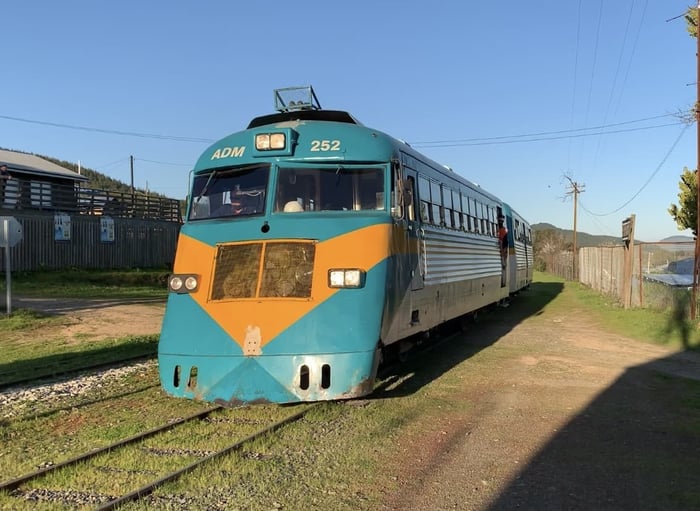
Many Chileans love the outdoors and can often be seen heading out to the suburbs with camping gear loaded into their big cars. Some of our staff lead active lives, waking up early to enjoy trekking and watching the sunrise from the top of a local mountain before coming to work. Many people have a cheerful personality, which is typical of South Americans. On weekends you can find them singing and dancing until late at night all over the city.
-- How is your diet?
Fresh produce, such as meat, fish and vegetables can be delicious if chosen properly. The country is also famous for sea urchins, so I sometimes make a little fancy pasta with plenty of fresh sea urchins. Chilean people love BBQs, and it is popular for them to grill meat and fish on their balcony and enjoy them with a glass of wine.

- I am worried that I will eat too much meat and gain weight.
Although it may not be so well known, Chile is also a major producer of fruits such as cherries and apples, and exports of these products have been increasing.
-- MOL Chile employs eight national staff, what views have you come to so far about the Chilean national character?
They have been described as an "honor student of South America," and from my perspective I find that our staff here take their work rather more seriously compared to neighbouring areas. They work with a sense of responsibility, and if you give them clear conditions and deadlines you can be confident about avoiding any trouble. We celebrate birthdays together over lunch, and when we have visitors we get together and entertain them, so I think we have a good team building spirit and a positive atmosphere of open communication.
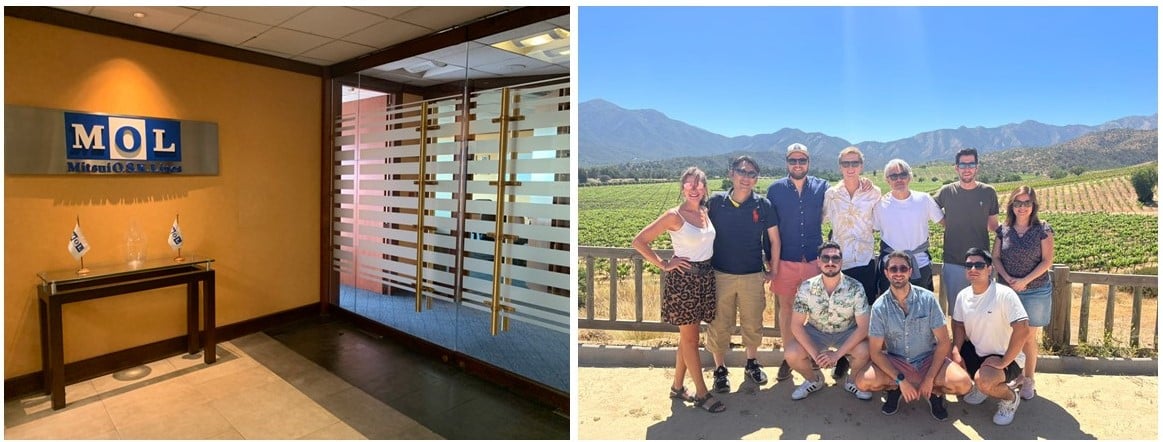
- They also seem to have a generally positive impression of Japan. Many of the younger generation have been familiar with Japanese animation since they were young. Also, they possibly share a kindred spirit with Japan due to both countries being earthquake prone. Although there is a great physical distance between our two countries, we are in a sense of neighbors across the Pacific Ocean.
Economic gap creates education gap, affecting staff recruitment
- -- Do you have any particular concerns about Chilean politics or economy?
The issue of economic inequality came to light in the wake of the massive anti-government protests in 2019. Mr. Boric, (35 at the time), who had campaigned on a policy focused on reducing inequality, was elected president last year, but following the rejection of a new draft constitution, he has been forced to modify his policy to a more conventional policy of economic expansion. Following recent trends towards resource nationalism, proposals have also been floated that would impose a tax burden on copper mining companies, and depending on the outcome of these proposals, future investment in new mines may be curtailed, which could have an impact on our business.
One difficulty in recruiting local staff is finding people who speak English at an adequate level. Speaking English is necessary to communicate with the masters of the vessels we operate and with our overseas contacts. However, as the locals can live comfortably using only their own language of Spanish, there are fewer people than I expected who can speak English without any problems. We are also constantly seeking ways to provide a work environment that keeps our staff motivated.
MOL Chile, a leading transporter of Chilean-loaded copper concentrates
- -- Tell us about MOL Chile’s business activities.
Our main business is the transportation of copper concentrates. Copper concentrate is a raw material used to refine copper, in which copper ore is crushed and floated to a grade of around 30%. Chile as a whole exports around 13 million tonnes annually, and we transport about 2 million tonnes of copper concentrates annually in Chilean loads, giving us the leading share.
In many cases, copper concentrate transport is carried out in combined loads. This is a method whereby cargos from several shippers are transported together on one vessel, requiring us to set up the most efficient rotation, taking into account the volume, type, and destination of the cargoes. Cold currents flow along the Chilean coast, and the tidal swells can cause ports to close suddenly, making it very difficult to put together schedules. These natural conditions make doing this somewhat akin to a puzzle. We make daily simulations, and with fine-tuning and hard work which rely on good cross-communication between the staff, we make efficient plans.
Another transportation concern is that the volume of cargo imported by Chile using bulk carriers, which we mainly handle, is small compared to the volume of cargo exported. We are working daily to obtain a good balance between import and export cargoes. 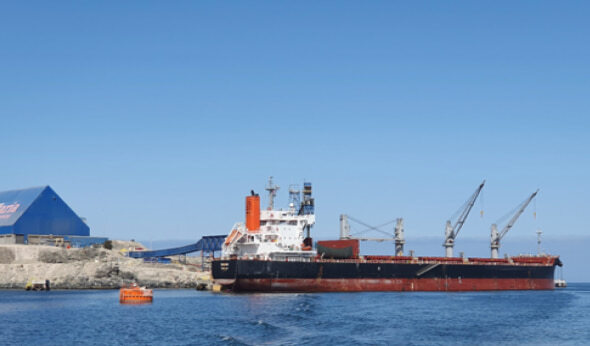
-
Looking ahead to opportunities to expand in the green energy sector
- -- How would you describe MOL Chile’s position within MOL?
MOL Drybulk is part of the MOL Headquarters Dry Bulk Business that operates vessels of up to 100,000 tonnes deadweight. Our four main sales offices are located in Tokyo, London, Singapore, and here in Santiago. MOL Chile is the sole operator of the Dry Bulk business on the west coast of South America, mainly involving the transportation of copper concentrates, and is an important base for business operations. Having a base and staff in Santiago gives us the advantage of being able to communicate with customers in the local language of Spanish, which is the official language used in many South American countries. This is very beneficial to us in expanding our business in the South American region.
Chile is also attracting attention in the energy sector, which MOL is focusing on, with many renewable energy-related projects planned. The development of solar power is active in northern Chile, where there are many deserts and strong sunlight. In the windy south, on the other hand, the development of wind power is thriving. The rivers that flow through the steep Andes Mountains with great force are useful for hydropower generation. Thermal power generation currently accounts for about 30% of the country’s electricity generation, but there is a national initiative to further switch to renewable energy sources that take advantage of these natural environments.
In recent years, there has been a surge in plans to produce green energy, such as hydrogen, ammonia, and methanol, all of which are produced from renewable energy sources. MOL, as a maritime transport company, is always looking for ways to help in the development of Chile. 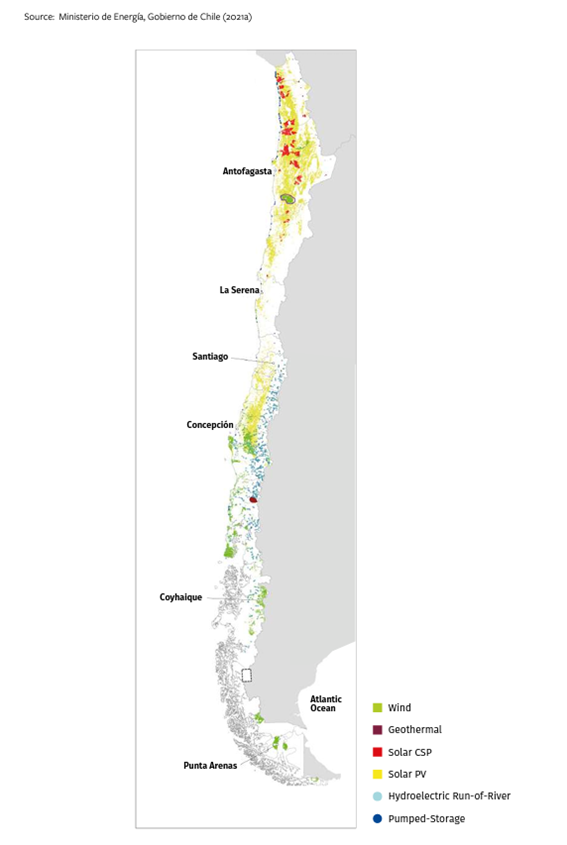
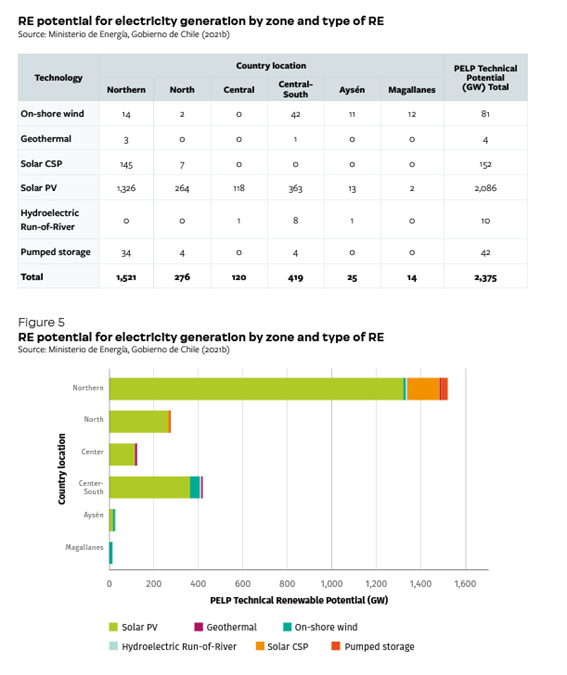
Source: The Chilean Potential for Exporting Renewable Energy
In addition to Dry Bulk transportation on which we have traditionally focused, we intend to expand our business by entering the green energy field, and to increase our presence both inside and outside the company as a central base for the North America and South American West Coast region.
Takuya Fuchikami
Managing Director, MOL Chile Ltda.
Chief Country Representative of Chile, Mitsui O.S.K. Lines, Ltd.
Recommended Articles
2022.07.05
- General Shipping
2021.04.13
- Energy
2025.03.18
- General Shipping
2021.08.07
- Eco Friendly
Latest Articles
2025.12.09
- Eco Friendly
- General Shipping
2025.12.03
- General Shipping
2025.11.20
- Energy
- General Shipping

